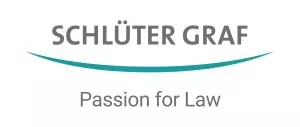The Jebel Ali Free Zone (JAFZ) – the biggest and oldest free zone in the United Arab Emirates (UAE) – has implemented two initiatives that were previously introduced in the mainland of the Emirate of Dubai in 2018: (i) the replacement of bank guarantees for employees by an insurance scheme and (ii) the issuance of long-term residence visas. In doing so, JAFZ is the first free zone in the UAE to introduce these initiatives. This legal briefing gives an overview of the new JAFZ initiatives and their impact on investments structured in JAFZ.
1. Replacement of Bank Guarantees
When the Ministry of Human Resources and Emiratisation (MOHRE) implemented the wage protection system in the UAE mainland in 2009, the Jebel Ali Free Zone Authority (JAFZA) was the first (and till date the only) free zone in the UAE to implement the same system for its customers and their employees, thereby creating a secure environment for employees. Now, JAFZA will again be the first UAE free zone in implementing the replacement of cash bank guarantees with an insurance scheme. The new initiative is expected to take effect in September 2019. Thereby, JAFZA will refund its customers their cash contributions paid in as cash bank guarantees for their employees, once they comply with new insurance requirements. It is expected that approx. AED 1.3 billion will be returned in light of the reform.
a) Current Situation
In accordance with Art. 11.1.2 Jebel Ali Free Zone Rules 2016, every entity registered in JAFZ and wishing to employ a person has to deposit a bank guarantee with JAFZA. The bank guarantee could be used by JAFZA as a security measure for cases where the customers would not pay the employee's entitlements during employment or upon termination due to various reasons. The bank guarantee is composed of two figures:
- an amount equal to 1.5 months' basic salary of the employee; and
- an amount equal to the value of a flight ticket to the employee's home country.
Due to these requirements, entities with a large workforce and/or a large number of high salary employees may face cash flow problems since considerable amounts are lodged with JAFZA in the form of bank guarantees. A refund of the bank guarantees is only possible once the employment of the respective employees has ended.
b) The Approach in UAE Mainland
Similar cash flow restrictions also existed for companies in the UAE mainland where entities had to deposit a bank guarantee in the amount of AED 3,000 (approx. EUR 750) per employee. However, at the end of 2018 MOHRE announced that this bank guarantee scheme would be replaced with a new insurance system which has been enforced in the meantime.
The insurance coverage is automatically purchased at the time of application for a new work permit or renewal of the work permit (fees of AED 153 (approx. EUR 40)) for two years are included in the application fees for the work permit). The insurance covers outstanding salaries, compensation and return tickets up to an amount of AED 20,000.
c) The Approach of JAFZA
During the Dubai Free Zone Council (DFZC) meeting in May 2019, the DFZC agreed – inter alia – to introduce the insurance system in all free zones. As the first free zone in the UAE, JAFZA announced on 20 May 2019, that it will replace the bank guarantee scheme and implement the insurance system starting in September 2019.
d) Next Steps & Practical Implementation
Until September 2019, JAFZA will select insurance companies that will offer the above-mentioned insurances for employees as a replacement for the bank guarantees. Once the insurance companies have been selected, JAFZA will implement the respective online procedure to apply for the refund of existing bank guarantees. It should be noted that customers will only be able to apply for a refund of the bank guarantees if an insurance policy has been presented to JAFZA. JAFZA also confirmed that it will be able to refund the bank guarantees to a foreign bank account, if necessary.
Companies licensed by JAFZA are advised to follow the announcements made by JAFZA in this regard. Once the accredited insurance companies have been announced, companies are advised to apply for the respective insurance policies in time.
Furthermore, once the refunds have been received by the companies, auditors have to be informed in order to correctly record the refund in the companies' books.
2. Long Term Residence Visas
The UAE Federal Authority for Identity and Citizenship – starting from May 2019 – is issuing long term residence visas for certain categories of expatriates. These socalled Gold Cards will not require a local sponsor and have a validity of either 5 or 10 years. Until now the government has issued around 400 Golden Cards to expatriates that have been selected by the government in accordance with the applicable terms and conditions.
a) Legal Framework in UAE Mainland
The conditions and categories of eligible expatriates are laid down in Cabinet Decision No. 56 of 2018 (Decision) which came into effect on 3 February 2019. In accordance with this Decision, the following group of persons are eligible for the Golden Cards:
| Length | Eligible Persons |
| 10 years | Investors in public investments |
| Partners in a company | |
| Talented individuals in various fields of science and knowledge | |
| 5 years | Real estate investors in the UAE |
| Entrepreneurs | |
| Outstanding students |
It should be noted that further conditions apply. For example, investors have to make an investment of AED 10 million (approx. EUR 2.5 million – in an investment fund, shares or other cash investments) which is not loaned. For real estate investments, the threshold has been set at AED 5 million (approx. EUR 1.25).
Expatriates granted with the Gold Card have to comply with the conditions provided by the Decision during the duration of the validity of the Golden Card.
b) Long Term Visas in Jebel Ali Free Zone
In June 2019, JAFZA announced the adaptation of the long-term residence visa incentive for JAFZA-registered employees.
The terms and conditions of JAFZA's long term visas will be subject to the aforementioned Decision. Furthermore, in line with the administrative practice in the UAE mainland, no application process will be applicable. JAFZA will rather select eligible customers pursuant to the existing qualifications and inform them about the grant of the long-term residence visa.
3. Summary
JAFZA's new initiatives are aimed at boosting its attractiveness for foreign investors. The replacement of bank guarantees is certainly a welcomed move as it will provide JAFZA-registered companies with additional cash flow in a time of economic stagnation. The timely adoption of the Golden Card by JAFZA shows that JAFZA wants to remain the most innovative free zone in the UAE.
While it remains to be seen when other free zones will follow with the implementation of these initiatives, the changes are creating a more favorable business environment for investors.
Regardless of this, it should be noted that the initiatives have been rolled out along with a set of other measures, such as the One Free Zone Passport Initiative, allowing free zone companies licensed in one of Dubai's free zones to also operate in other free zones in Dubai without the need for a second commercial license. These measures must be seen in the light of the recent relaxations in foreign direct investment regulations in the mainland. It is expected that the free zones in the UAE, in particular in Dubai, will continue to relax regulations as they try to attract and retain investors.
The content of this article is intended to provide a general guide to the subject matter. Specialist advice should be sought about your specific circumstances.


